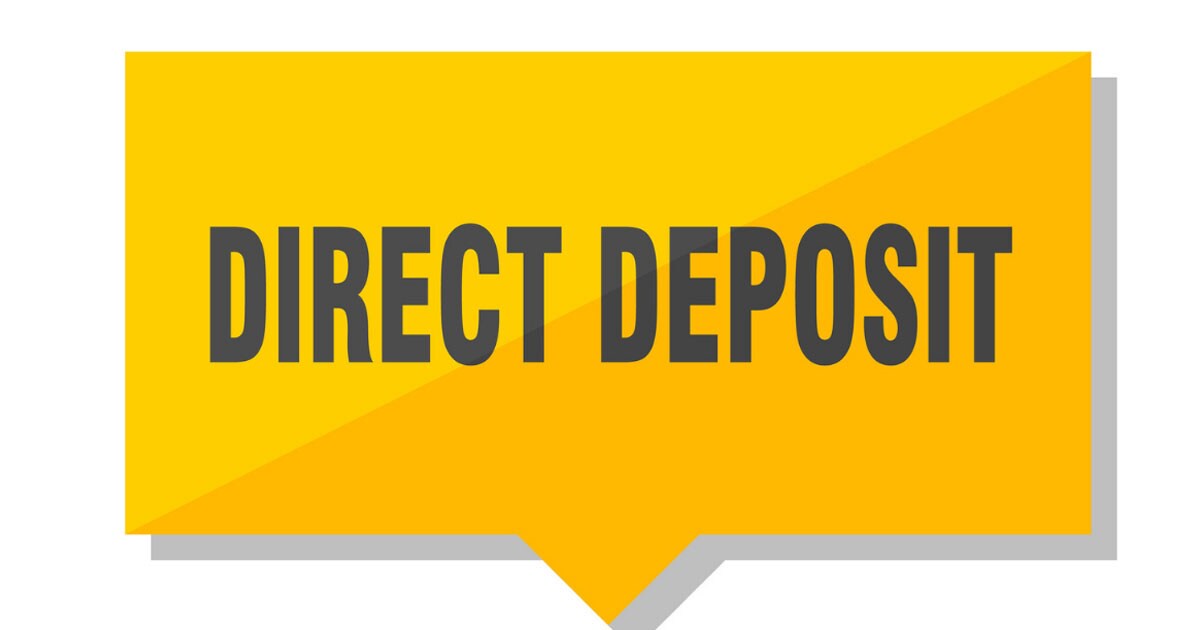Direct deposit is an easy and convenient way to deposit money into a bank account. It is a secure method of transferring funds electronically from one account to another, typically from an employer to an employee. With direct deposit, your salary or wages are automatically deposited into your bank account on the day of your payday, eliminating the need to wait in line or take a trip to the bank. This blog post will discuss direct deposit and how it works.
What is direct deposit?
Direct deposit is an electronic funds transfer (EFT) method used to electronically transfer money from one financial institution or employer to another. It is a safe and convenient way to manage your money, allowing you to make payments without worrying about carrying cash or writing a check. It is also a great way to build wealth over time, as the money goes directly into your bank account and is immediately available. With direct deposit, you can ensure that your money is safely and securely transferred each month, so you can use it to make essential purchases, save for retirement, or enjoy life a bit more.
How does direct deposit work?
Direct deposit is an electronic method of transferring funds directly from an employer or other source into a designated bank account. It is one of the most convenient ways to manage your finances and accumulate wealth. With direct deposit, you can deposit money directly into your checking or savings account without worrying about depositing cash or waiting for a check to clear.
The process of setting up direct deposit is usually straightforward. Your employer will provide you with a form to complete with your bank account information and authorization for the funds to be transferred. Once this is set up, your employer will initiate the transfer on payday or when the payment is due. Your money will instantly and securely arrive in your account, giving you access to your funds immediately.
When does direct deposit hit?
Direct deposit timing depends on when your employer sends the money to your bank, but generally, deposits are made available the same day. Your pay period and payment frequency may also affect when you get access to your funds, but in most cases, the money should be available shortly after the employer sends it. This can provide a wealth of benefits, as you can ensure that you are paid on time and have immediate access to your funds.
What are the benefits of direct deposit?
Direct deposit is a popular and secure payment method that can offer many benefits to employers and employees. Direct deposit is convenient, safe, cost-effective, and efficient.
For employers, direct deposit eliminates the need to process payroll checks manually. This can significantly reduce administrative costs and save time for more critical tasks. It also makes it easier for employers to pay employees in different locations, as the payments can be sent directly to the employee's bank account no matter where they are located.
For employees, direct deposit ensures that their money is available on payday without waiting for a check to arrive in the mail or making a trip to the bank. With direct deposit, funds are transferred electronically, so the statement is less likely to be lost or stolen. Additionally, it allows employees to set up automatic payments for bills and other expenses directly from their paychecks.
Overall, direct deposit is an easy and secure way to manage payroll. It can save both employers and employees time and money, making it an attractive option for both parties.
Are there any disadvantages to direct deposit?
Although direct deposit is typically very convenient and efficient, there are some potential downsides. One of the most significant disadvantages is that there may be less control over when and how you receive your money. Depending on your employer's policies, you may not always receive your money on a specific date each month.
Another potential downside is the lack of a physical check. It may be challenging to do without a physical examination if you can provide proof of payment, such as rent or loan payment.
Additionally, there is the potential for error. For example, if the bank information you have provided is incorrect or outdated, your funds may be delayed or sent to the wrong account. Sometimes, you may not be aware of any errors until a long time has passed and the money is not received.
Overall, although direct deposit can be a convenient and secure way to receive payments, it's essential to consider the potential drawbacks before signing up for this service.


No comments yet